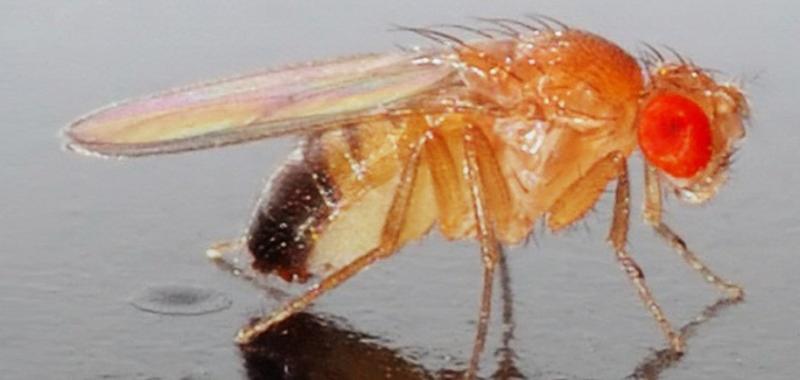
Our environment and lifestyle impact our development by influencing gene expression in our body and genes whom we inherit from our parents dictate every aspect of our development. These genes exist in cells in the form of a molecule called DNA which not only acts as hardware but is also programmed in a highly sophisticated manner. Programming of DNA in a particular cell determines which genes are active in a given cell type while others may remain inactive and consequently establishes specialised cell type. Our body contains more than 200 different cell types (neurons, heart, kidney, liver etc), all of which contain the same DNA based information, yet they develop and attain different identities. Establishment and maintenance of different cell types result from interaction of cells with their environment (internal as well as external) which influence information encoded in DNA, eventually leading to differences in different cell types in the form of genes being expressed in each cell type. Such complex interaction of cells and their DNA with the internal and external environment is referred to as epigenetics. Epigenetic phenomenon ensures that once a cell identity (heart, kidney, liver etc) is established, it is faithfully inherited to all subsequent progenitors of the initial cell. For example, cells determined to become kidney cells will always remember their identity to stay as kidney cells, otherwise they lead to the development of tumor in the kidney.
The first epigenetics research lab of Pakistan has been established at the LUMS School of Science & Engineering (SBASSE) by Dr Muhammad Tariq, Chair – Department of Biology. This lab is particularly interested in how the environment may modulate genetic information through epigenetic mechanisms. To pursue his research goals, Dr Tariq has established the fruit fly (Drosophila melanogaster) research lab at SBASSE which is also being used to teach undergraduate students different aspects of genetics, molecular biology and developmental biology. Importantly, this lab also aims to develop epigenetic signatures of disease like cancer, hepatitis C in the Pakistani population which may impact effectiveness of different therapeutic therapies in future.
To highlight the significance of fruit flies as research model organisms Dr. Tariq says, “During the last eighty years of biological research, studies in fruit flies have provided us answers to very complex questions like how genes are inherited from parents to children and how development proceeds from a single fertilised egg to a well grown adult.” Although, it may sound surprising but based on these discoveries it has been realised that molecular and biochemical pathways which contribute to the development of a normal organism are quite similar in flies and humans e.g. homeotic genes, cell signaling pathways and developmental genes etc. This implies that organisms as distant as humans and flies are far more similar at the molecular and cellular level than their physical appearance. Importantly, many genes originally found in the Drosophila are now found to be involved in human diseases like cancer.
Dr. Tariq’s work focuses on the Polycomb group (PcG) and Trithorax group (TrxG) proteins which control a plethora of developmental processes in both animals and plants and are responsible for maintaining cell-type specific identity. Interestingly, PcGs are referred to as silencers as they literally shut down gene activity, and TrxG proteins are referred to as anti-silencers as they maintain genes in an active state. Both PcG and TrxG functions are analogous to switching off or switching on a light in a room, respectively. “Understanding the mechanistic pathways and factors involved in the modulation of PcG/TrxG proteins should enable us to answer questions such as how cell fate can be changed and how a disease like cancer may arise,” explains Dr. Tariq. Last year he was awardedthe LUMS FIF grant which he used as a basis to win an HEC grant of PKR 5.3 million for his research proposal that aims to decipher PcG interactions with the internal environment of a cell.
The epigenetics research lab at SBASSE is also interested in establishing the Drosophila as a disease model for the Mixed Lineage Leukemia which is a type of cancer in infants due to alterations in MLL5 gene in humans. This gene is a part of the TrxG group found in the Drosophila and its malfunctioning results in cancer. In this regard, Dr. Tariq believes that the Pakistani population provides interesting subjects for study of genetic mutations involved in different human diseases. He says, “Marriage amongst cousins is a prevalent practice in this region that leads to accumulation and enrichment of much more mutations as compared to other parts of the world.” It is expected that the outcome of this research can be vital in characterising the leukemia causing gene as well as effects on cellular growth.
Dr. Tariq is also working closely with his colleague, Dr. Sohail Qureshi, Dean and Professor of Biology at SBASSE, on studying the biology of the Hepatitis C Virus (HCV) and understanding the epigenetic mechanisms that leads to onset of HCV. They are developing collaborations with clinicians to understand the molecular changes that cause rapid HCV evolution as well as lead to a better understanding of virus-host interaction - key to developing future therapeutics for HCV. “The available treatment options for individuals infected with HCV are limited. Therefore answers to the questions we are pursuing will be relevant to pharmaceutical industries looking for a drug that tackles rapidly evolving HCVs,” comments Dr. Tariq.
One of the aims of the SBASSE at its inception was to create knowledge that will contribute to the frontiers. The work of the Epigenetics Research Lab set up by Dr. Muhammad Tariq is a testament to that mission which aims to produce the next generation of researchers who will be able to take up challenges in life sciences research in the years to come. It is not only playing a significant role in transforming the research culture in Pakistan but also introducing modern curriculum at the undergraduate level which has never been done before in Pakistan.







